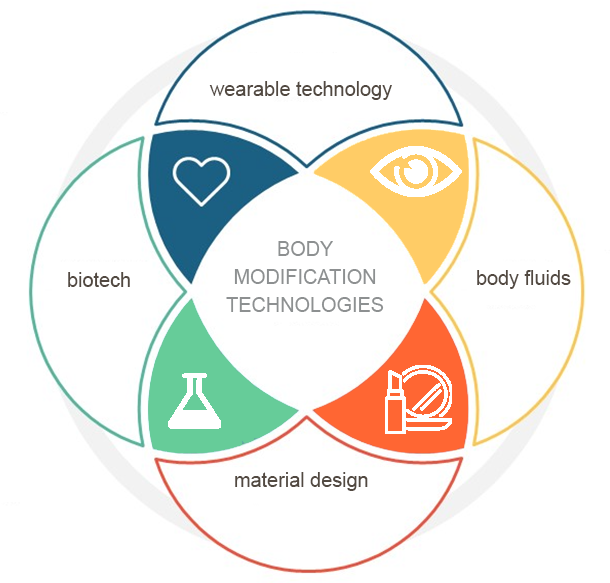CS PhD Opportunity at IOLab - 2025
PhD Opportunity in Human–Computer Interaction at UC Davis
Interactive Organisms Lab – Prof. Katia Vega
Are you passionate about HCI, wearable technologies, and novel materials?
The Interactive Organisms Lab at the University of California, Davis, is seeking for a PhD member that is independent, not afraid to explore unconventional research areas, passionate about Human Computer Interaction and Wearable Technologies, and work in multidisciplinar environments.
ABOUT THE LAB
We design interfaces that merge novel scientific materials with living systems—such as cosmetics that react to body chemistry, tattoo-like biosensors, and sustainable materials for on-skin computing. More info: https://iolab.ucdavis.edu/
Examples of projects:
Dermal Abyss: interfacing with the skin by tattooing biosensors https://dl.acm.org/doi/10.1145/3123021.3123039
Nail pHolish: Sensing Hand-Fluid Interactions Through Biocosmetic Interfaces https://doi.org/10.1007/978-3-032-05002-1_29
braceIO: biosensing through hydrogel dental ligatures https://dl.acm.org/doi/10.1145/3410531.3414290
Myco-accessories: Sustainable Wearables with Biodegradable Materials https://dl.acm.org/doi/pdf/10.1145/3341163.3346938
MANDATORY REQUIREMENTS:
- California resident applicants only
- Master’s (preferred) or Bachelor’s in HCI or related fields
- Previous work aligned to Lab's research such as wearable computing, biotechnology materials, and design
- Experience with ACM SIGCHI publications such as CHI, DIS, UIST, TEI, ISWC, Ubicomp, either through prior publications or active submissions under review in these venues.
HOW TO APPLY:
Applications will be review just UC Davis CS portal only — no email submissions.
Deadline: Dec 15th (Applications received after this date will not be considered)
For more information and requirements: https://cs.ucdavis.edu/graduate/prospective-students/how-apply
CONTACT:
For more questions about the position, please contact directly Prof. Katia Vega (kvega@ucdavis.edu)
We kindly ask that only applicants who meet all four listed mandatory requirements reach out. Due to high interest, emails from individuals who do not meet these requirements may not receive a response.
Professor's Bio: Katia Vega is an Associate Professor in the Department of Design and a member of the Graduate Group in Computer Science at the University of California, Davis. She directs the Interactive Organisms Lab, where her research integrates human–computer interaction, biotechnology, and material design to create biosensing wearables and biocosmetic interfaces that connect health, design, and technology.
She was a Postdoc Associate at MIT Media Lab (USA). She got her PhD and master's degree in Computer Science at PUC-Rio (Brazil). She was a researcher in the Fine Arts Department at HKBU (Hong Kong). Her undergraduate studies were done in Computer Science at UNMSM (Peru). She publishes at top-tier academic computer science conferences and journals including CHI, ISWC, TEI, DIS, IUI and IEEE Computer. Her work has been featured by BBC, Vice, New Scientist, Wired, Discovery, CNN, Fast Company, Mashable, among others. Her academic contributions were awarded by NSF CAREER, SXSW, Ars Electronica, Johnson & Johnson, CNET, among others. Springer published her book: "Beauty Technology: Designing Seamless Interfaces for Wearable Computing”.
POTENTIAL RESEARCH:
This project investigates Body Modification Technologies: wearable devices for biosensing through novel form factors with embedded biosensors that interact with body fluids. Current practices for body modification include piercing, tattooing, branding, binding, bodybuilding, and inserting implants. By establishing new collaborations with surgeons, cosmetics companies, beauty salons, and dermatologists, this project investigates placing biosensors on and underneath the skin through body modification materials--lipstick, hair dye, piercings, and tattoos. Biosensors in direct contact with body fluids can significantly improve biological sensing data. This project develops new knowledge about methods and effects of transforming the body into a bio-display, in order to make visible information from metabolism that is usually imperceptible. Potential applications include monitoring illnesses, hormonal changes, dental health, eating disorders, stress tracking, pharmacokinetics, maintaining a culture of health in communities, and sensing changes in environmental factors such as pollution, temperature and UV. Further, the project will collaborate with experts on privacy, safety, and biocompatibility to articulate ethical principles for creating Body Modification Technologies.
The Body Modification Technologies project advances wearable computing by developing implementation and evaluation methods to reveal metabolic information by using the form factors of body modifications as a substrate for chromogenic, fluorescence and electrochemical biosensors. This project investigates the design of the electronics, functional algorithms, biotechnology applications, and form factors, e.g., the shape, size, materials, and other physical characteristics that make it possible to wear such devices. Expected outcomes include: (1) fabrication processes for creating the form factors that embed biosensors into body modification materials; (2) design and implementation of hardware and software for devices and mobile applications; (3) dissemination of benchmarking datasets and methods for evaluation of Body Modification Technologies; and (4) derivation of a set of principles and implications on privacy, safety, bio-compatibility, and inclusive design.

